Wagnée Castle
Majestic and authentic, the castle welcomes you to the heart of Condroz.
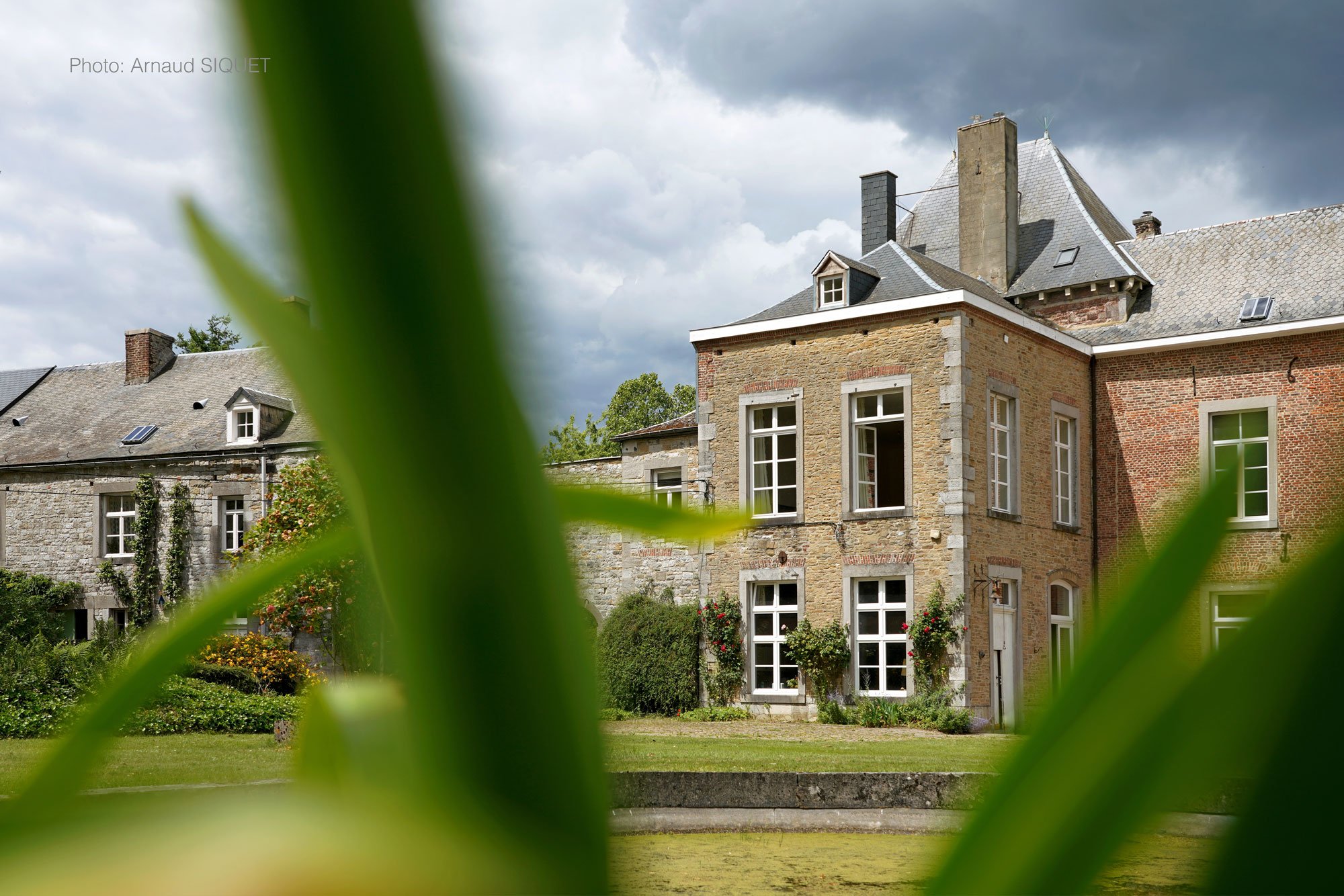
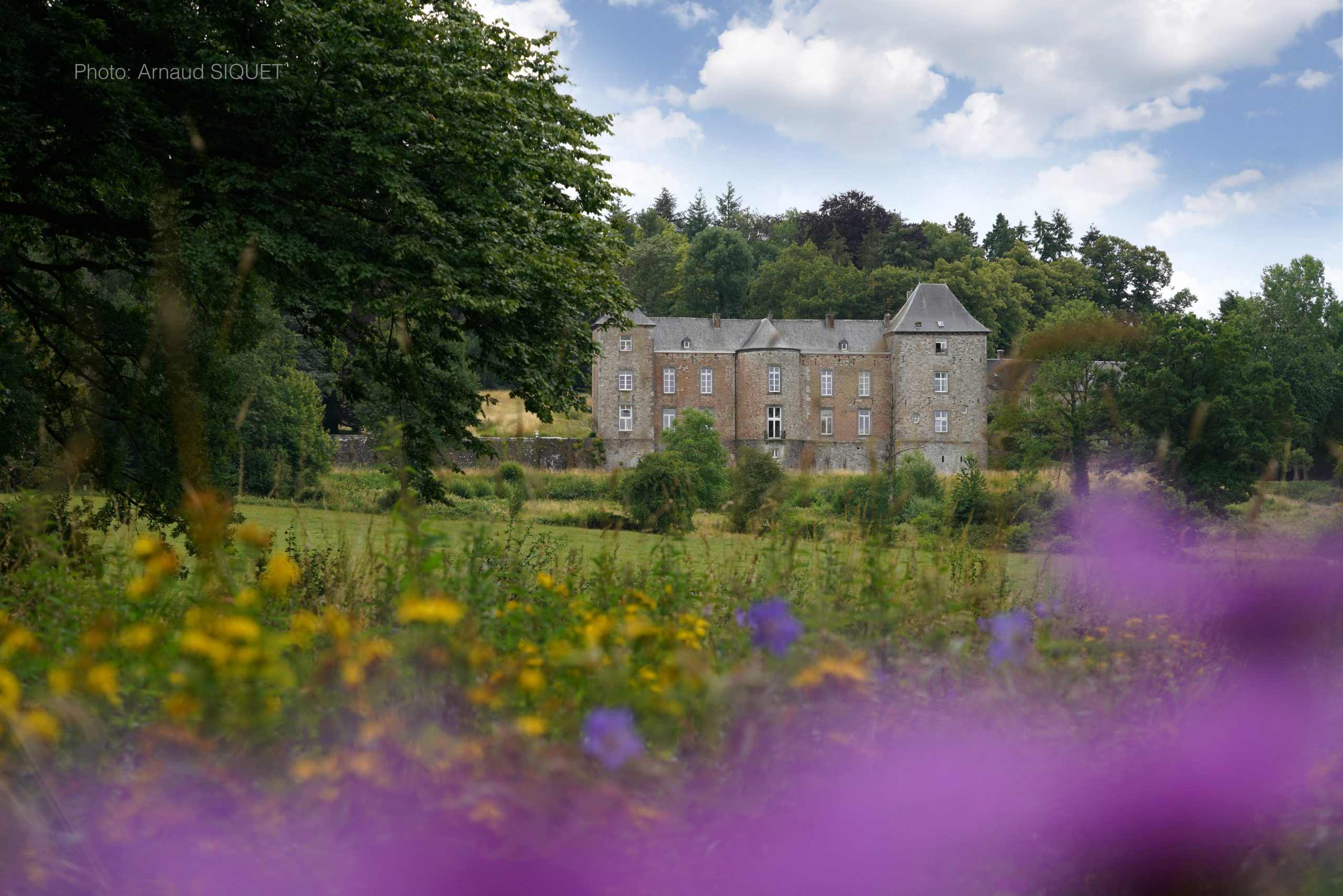
Castle and natural heritage
Wagnée Castle is located in the middle of a beautiful park whose general appearance is that of an English park redeveloped at the end of the 19th century. Careful management for agricultural, forestry, hunting and aesthetic purposes has allowed, over the generations, the constitution and conservation of a rural landscape where woods, meadows, fields, crops and bodies of water blend harmoniously.
Streams, pools, hedges, old trees, old trees, old walls and paths contribute to providing a habitat of choice for many species including the barn owl, the spotted woodpecker, the orvet, the Great March change, the Great March changing, the colchicum and the wood geranium.
Current management aims to maintain this balance and increase the natural wealth of the place. The obstetrician must thus be able to continue to brighten Wagnée's nights for a long time to come.
Pictures from yesterday and today
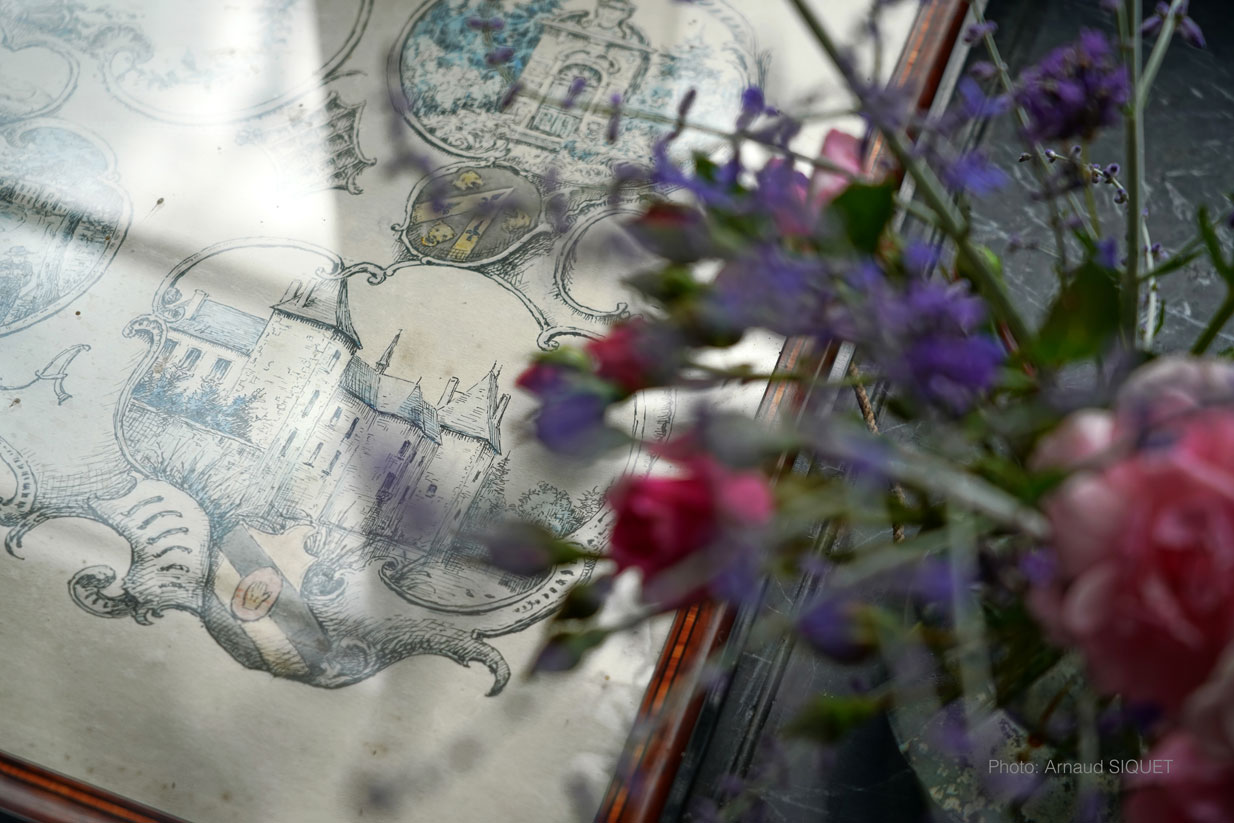
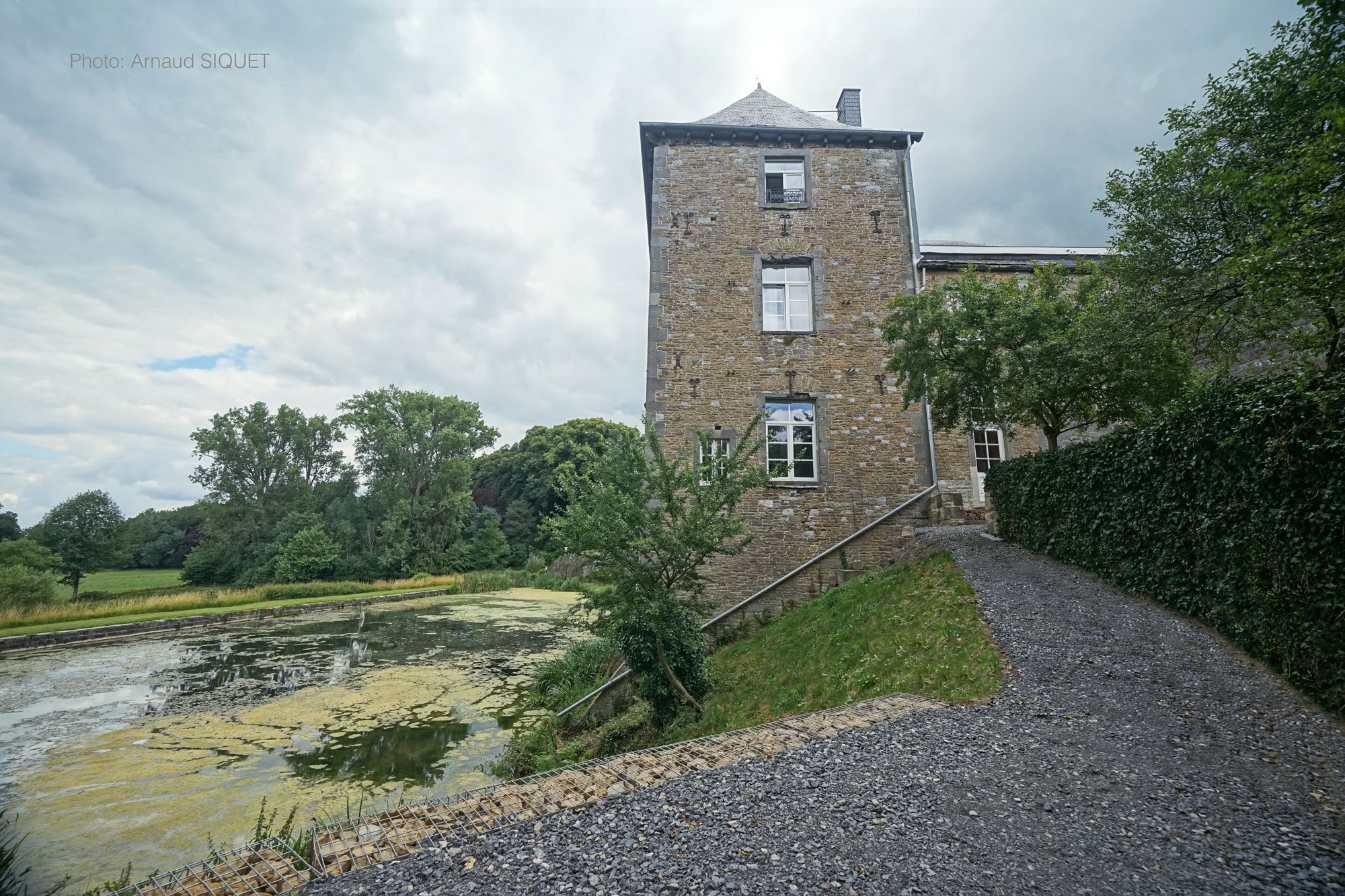
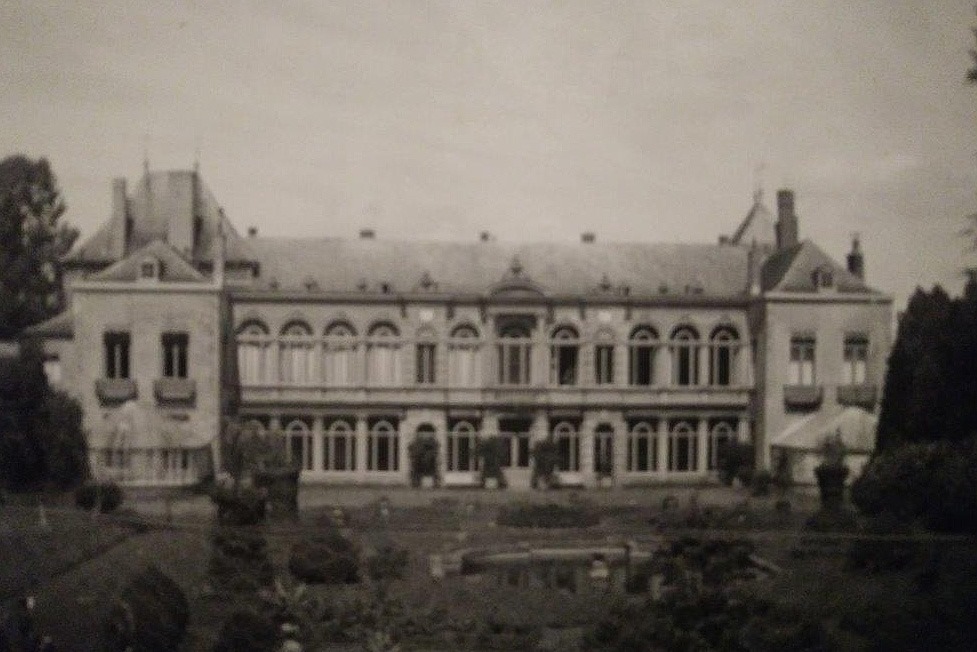
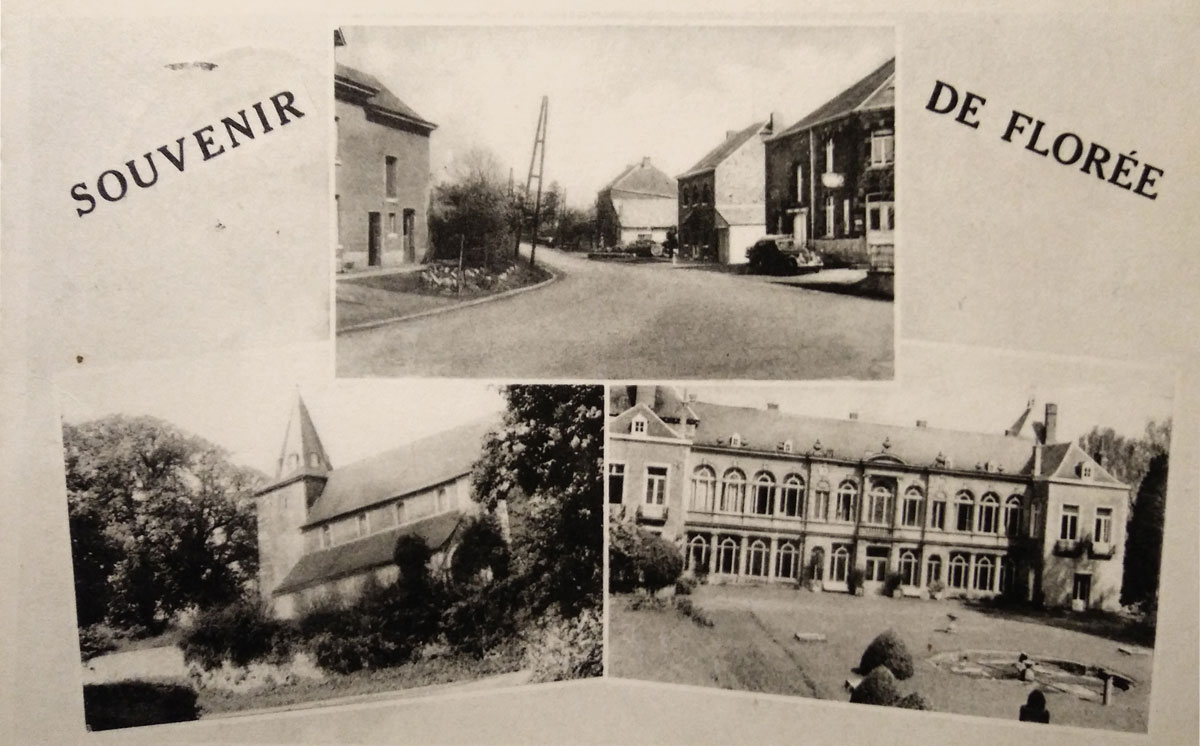
History
The castle, with its centuries of history, combines ancient architecture and family spirit.
1611
Originally, only a tower surrounded by water dominated the seigniory of Wagnée
In 1611, Jean de Berlo Brus, husband of Marguerite d'Eynatten, built a vast quadrilateral surrounded by four towers encompassing the original tower (“the high courtyard”) which he attached to “the barnyard”. The manor then passed, according to alliances, into the hands of the Poittiers and then Helmstadt.
1768
Antoine Lamquet acquires Wagnée
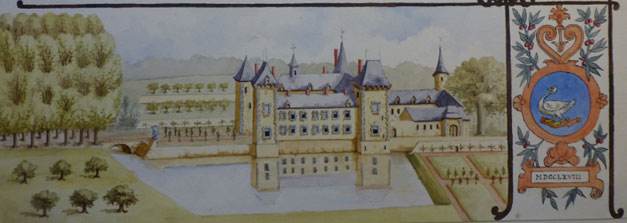
In 1768, Antoine Lamquet bought the complex from Count Blackard of Helmstadt. Since about 1300, the seigniory was in the descendants of Guillaume de Houtain. Philippe-Antoine, Antoine Lamquet's father, was originally from Glymes in Brabant. Coming from a family of farmers, he made a fortune by transporting various goods. Among other things, he developed land routes that were less expensive than river routes to transport derle (clay) to the United Provinces.
1769
A manor passed on by inheritance
When Antoine Lamquet died in 1769, the manor passed into the hands of Henri Lamquet, Mayor of Namur. Henri's daughter Julie, married to Casimir de Modave de Masogne, inherited Wagnée.
1804
Casimir of Modave and the transformations of the castle
It was Casimir de Modave who replanted the main linden alley in 1804. Henriette, the daughter of Casimir and Julie de Modave, married Baron Maurice du Pont d'Ahérée. The building underwent major transformations during the first half of the 19th century: the southern part of the quadrilateral was destroyed and a rotunda was added to the north facade.
1872
End of the 19th century
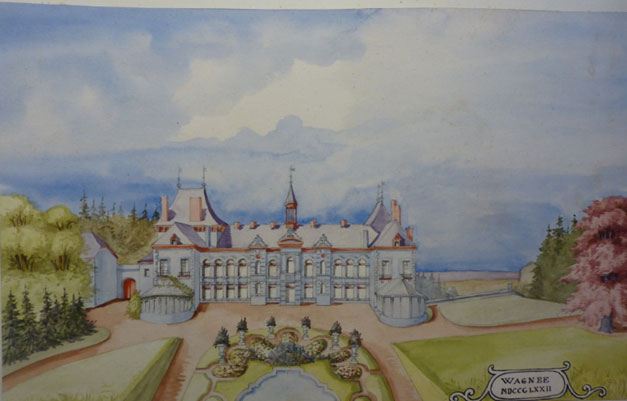
Félix du Pont d'Ahérée, son of Maurice and Henriette, added a “gallery” on the south facade of the building.
The entire ground floor was now reserved for a vast winter garden with orange trees, water basins and fish. Félix d'Ahérée, with numerous artistic talents, decorated the house with multiple painted ceramics that are the particularity of this house today. He married Aloyse Geelhand who brought with her a bit of the spirit of Antwerp. The property passed to his daughters Maria and Jeanne. Jeanne married Count Alphonse van der Stegen de Schrieck
1960
Preserve and transform

Their sons and stepdaughter, Jean-Marie van der Stegen de Schrieck and Gaëtane, born Baronne van der Straten Waillet, undertook restoration work in 1960. They made the castle habitable for a family of six children. On this occasion, they destroyed the east wing and the gallery.
2016
A new stage for Wagnée Castle
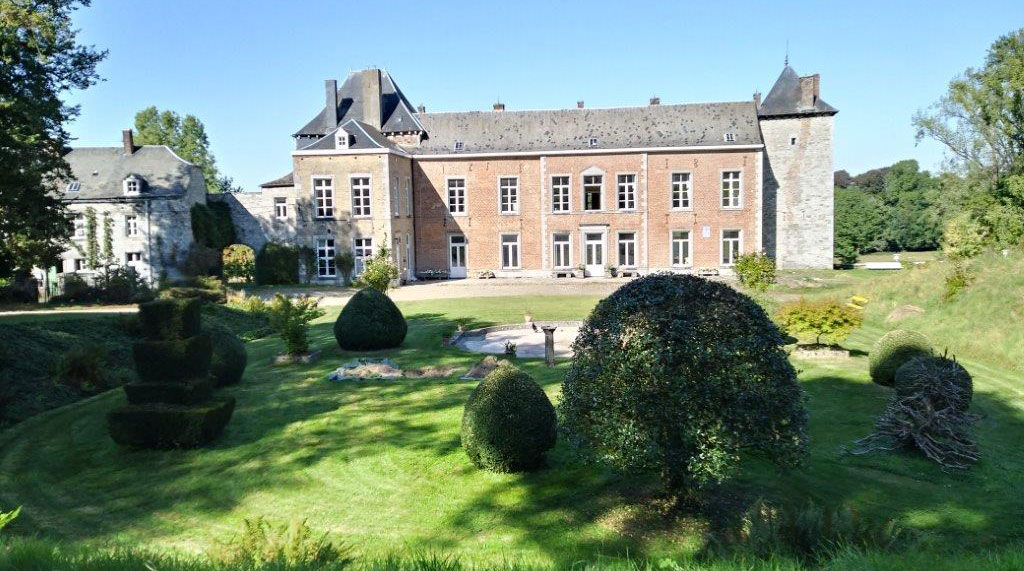
It was in October 2016 that Joseph van der Stegen de Schrieck, their son and his wife Ariane, nee Waucquez, began the creation of a cottage and the in-depth redevelopment of the castle. Over the centuries, Wagnée Castle has undergone multiple, sometimes surprising, modifications. But its adaptation to the needs of successive times allowed it to reach us.
Ready to visit us?
Joseph and Ariane van der Stegen de Schrieck are delighted to welcome you there and to share with you this place, as well as the multiple treasures of Condroz.

